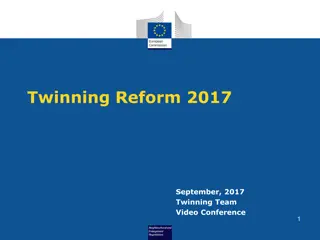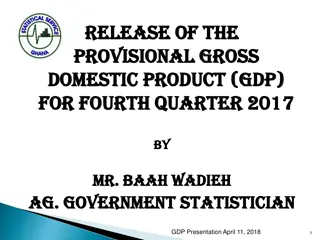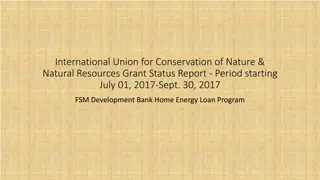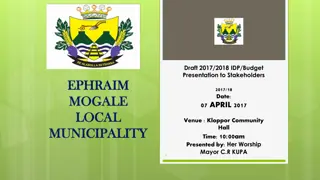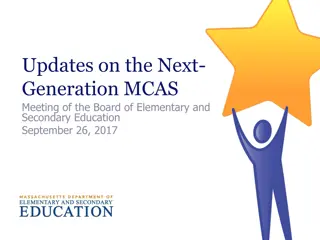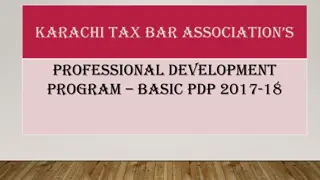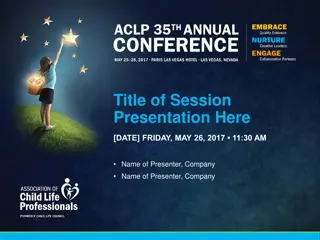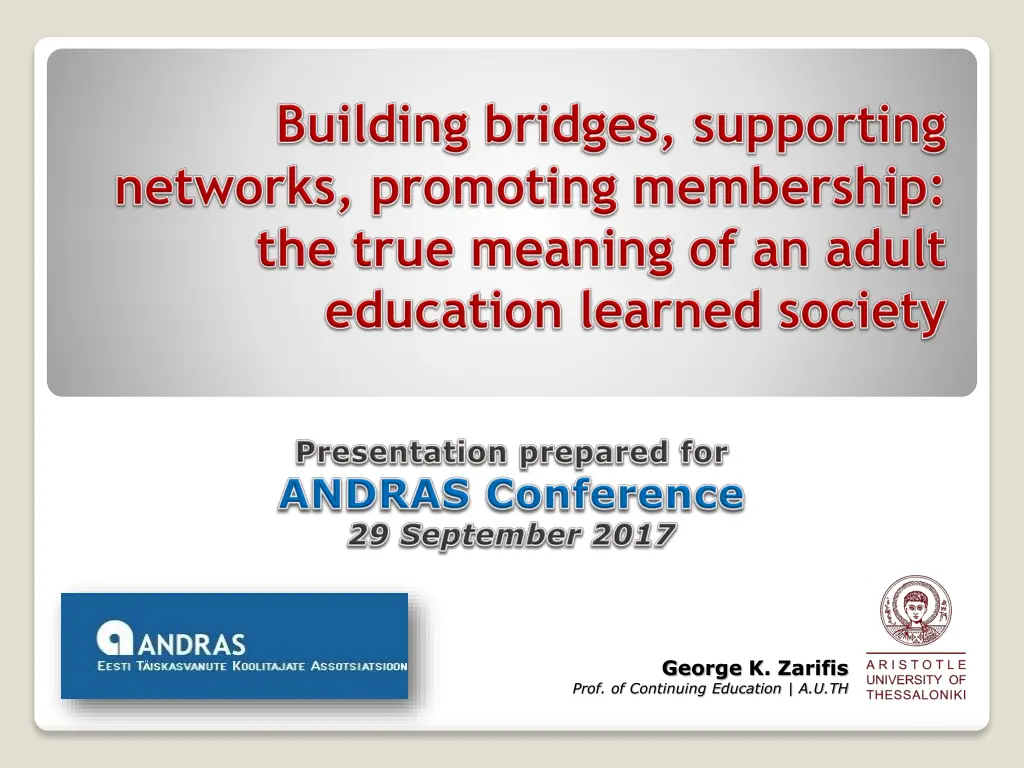
Learned Societies: Foundations and Impact
Explores the significance of learned societies in scholarship and research, tracing their evolution from ancient origins to their crucial role in shaping American higher education. Learned societies facilitate the advancement of knowledge, establish standards, and contribute to the development of new disciplines. Discover the history and phases of learned societies through the insightful perspectives of George K. Zarifis, a distinguished Professor of Continuing Education at A.U.TH.
Download Presentation

Please find below an Image/Link to download the presentation.
The content on the website is provided AS IS for your information and personal use only. It may not be sold, licensed, or shared on other websites without obtaining consent from the author. If you encounter any issues during the download, it is possible that the publisher has removed the file from their server.
You are allowed to download the files provided on this website for personal or commercial use, subject to the condition that they are used lawfully. All files are the property of their respective owners.
The content on the website is provided AS IS for your information and personal use only. It may not be sold, licensed, or shared on other websites without obtaining consent from the author.
E N D
Presentation Transcript
George K. Zarifis Prof. of Continuing Education | A.U.TH
ANDRAS Conference 29 September 2017 George K. Zarifis Prof. of Continuing Education | A.U.TH
What is a learned society? LEARNED SOCIETIES are voluntary organizations of individuals dedicated to scholarship and research, often focused on a particular subject or method ANDRAS Conference 29 September 2017 George K. Zarifis Prof. of Continuing Education | A.U.TH
What is a learned society? Although this form has ancient antecedents and European exemplars such as the British Royal Society and the French Academy, it has taken on a distinct form in the United States and has played a critical role in the evolution of American higher education ANDRAS Conference 29 September 2017 George K. Zarifis Prof. of Continuing Education | A.U.TH
What is a learned society? The history of learned societies can be divided into three phases: 1. The earliest societies, founded before and until 18thcentury, were local collections of literate and inquiring minds 2. In the mid-nineteenth model emerged: broad-based organizations often dedicated to knowledge and promoting social reform century, a new popularizing new ANDRAS Conference 29 September 2017 George K. Zarifis Prof. of Continuing Education | A.U.TH
What is a learned society? 3. What learned society an open organization of scholars seeking to establish standards and to advance research in a particular arena of academic inquiry was coeval with the development university became the predominant form of of the research The emergence of learned societies made possible in turn the creation of national organizations that could advance scholarly research through and with universities ANDRAS Conference 29 September 2017 George K. Zarifis Prof. of Continuing Education | A.U.TH
What is a learned society? Learned societies are of key importance and their formation assists in the emergence and development of new disciplines or professions ANDRAS Conference 29 September 2017 George K. Zarifis Prof. of Continuing Education | A.U.TH
Why do we need learned societies in adult education? The demographic changes, the increasing number of students, the pressure from labour market demands, and health care are strong drivers to develop adult education learned societies and/or to develop a dialogue between research and practice in the field. These factors are augmented by the appearance of new organisations and institutions ANDRAS Conference 29 September 2017 George K. Zarifis Prof. of Continuing Education | A.U.TH
Why do we need learned societies in adult education? A more global factor is the emergence of the Knowledge Society implying a major change in knowledge production and recognising that other actors besides those who are already committed in adult education are engaged with it. This change forces those who actively participate scholarly and practically to dialogue in general ANDRAS Conference 29 September 2017 George K. Zarifis Prof. of Continuing Education | A.U.TH
Why do we need learned societies in adult education? Although some of these isntitutions (i.e. universities) that advance knowledge cannot be forced on any type of dialogue as such, in this context, linking practice to research has a crucial role to play in validating methods used to co-create knowledge and to articulate and structure fragmented knowledge into a language that is understood by all ANDRAS Conference 29 September 2017 George K. Zarifis Prof. of Continuing Education | A.U.TH
How can networking be promoted in adult education? Networks have a vital role to play in stimulating critical debate and information sharing, in promoting innovative approaches to adult learning and in driving advocacy campaigns to raise the profile of our sector ANDRAS Conference 29 September 2017 George K. Zarifis Prof. of Continuing Education | A.U.TH
How can networking be promoted in adult education? Particularly in regions where adult education continues to be marginalized and under-resourced, individuals and institutions need to come together and identify the commonality of their interests and the need to work together towards an adult learning movement ANDRAS Conference 29 September 2017 George K. Zarifis Prof. of Continuing Education | A.U.TH
How can networking be promoted in adult education? Networks and networking possess enormous potentials in terms of information sharing, competence development and policy work It is up to the members to use the networking according to their needs and for the benefit and added value of the membership and beyond ANDRAS Conference 29 September 2017 George K. Zarifis Prof. of Continuing Education | A.U.TH
How can networking be promoted in adult education? Through pooling of resources, access to expertise, collective knowledge and broad dissemination networks can respond to arising national or regional challenges in a fast and efficient way Results can then be used to make a call for a political and/or structural change as well as serve as guidelines for next generation of projects and new initiatives ANDRAS Conference 29 September 2017 George K. Zarifis Prof. of Continuing Education | A.U.TH
How existing conduits can be improved? Create viable partnerships between government, business and civil society that support integrated approaches to learning and development Expose opportunities people of all ages to a wide range of learning Showcase innovative projects and programmes (e.g TTOP) Build synergies with existing learned societies (e.g. ESREA) Celebrate learners achievements Develop a tradition of a Learning Festival ANDRAS Conference 29 September 2017 George K. Zarifis Prof. of Continuing Education | A.U.TH
What issues can be prioritised? 1.Attract interest of new partners and sectors (e.g. social partners, policy makers) 2.Financing adult education 3.Motivation and increased access 4.Workplace as a learning arena 5.Validation of prior learning 6.Guidance and counseling 7.Professional development educators and relevant staff 8.Building and developing curricula 9.Quality assurance 10.Active citizenship of adult ANDRAS Conference 29 September 2017 George K. Zarifis Prof. of Continuing Education | A.U.TH
George K. Zarifis Prof. of Continuing Education | A.U.TH


